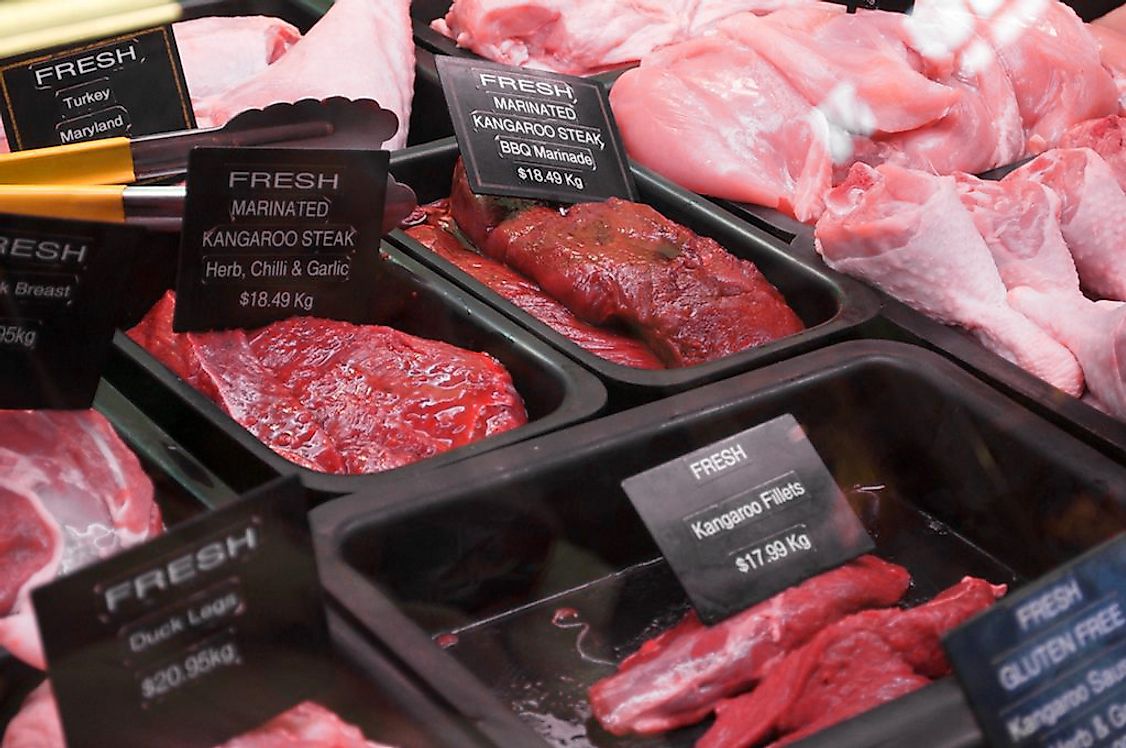Top Exporters Of Rabbit, Squab, And Other Novelty Meats

In some parts of the world today, people have the choice of eating unique meats for their everyday sustenance. It may be unusual to consume in one’s country but are common fare in other countries. These butchered meats: rabbit, deer, squab, quail, and pheasant are exported as are common meats like chicken, beef, and pork. These unique darker meats have an intense wild flavor that is influenced by their lean wild diet of grains, berries, grubs, and wild grasses. However, the overconsumption or unregulated consumption of such wild meat might also lead to a decline in wild populations of these species.
Exports of Unique Meats
In 2015, the International Trade Center published the export value of common and uncommon meats NES from the top 10 meat exporters around the world. Deer, rabbit, squab, and quail comprise the unique meat exports of these countries. Although kangaroo, ostrich, and crocodile meats are also exported. Most of these countries have high biosecurity controls and quality control processes that pass the stringent customs requirements for importation of these unique meats to other countries.
New Zealand ($137,753,000USD), leads the way in sharing these unique protein sources with the rest of the world. Belgium ($85,140,000USD), comes second in the export of unique protein sources. Poland ($81,565,000USD), is third in the export of unique meats. Spain ($63,851,000USD), comes in fourth in the export of unique protein sources. France ($58,095,000USD), comes in fifth in the export of unique meats. Germany ($55,749,000USD), is sixth in the export of unique protein sources. The Netherlands ($49,721,000USD), is seventh in the export of unique meats. Hungary ($43,680,000USD), is eighth in the export of unique protein sources. China ($40,427,000USD), is ninth in the export of unique meats. Austria ($27,186,000USD), is the tenth exporter of unique meats.
Exporters usually have two sources for the unique meats. The wild source supplies meats that are darker and tougher but tastes more flavorful due to their diet. The domestic sources supply a plump, lighter, and tender meat but less flavorful due to its diet. Most of these animals are farmed in well-ventilated and illuminated housing. Disease control is an important aspect in the husbandry of these animals. Clean housing is also important in maintaining population growth, survival and meat production output.
Loss Of Wild Species From Unregulated Consumption
The processes that lead to the selling of unique meats vary from country to country that are sourced from wild sources and domestic stocks. The production facilities and processing venues are subject to inspection by government agencies. However, some countries have exemptions if some requirements are met. There are also several types of approval as needed for the final shipping and sale of these unique meat products. Some countries require licenses for transporting meat and poultry. Different licenses also apply for selling and export.
The different unique meats such as rabbit, deer, squab, quail, and pheasant all have their particular foreign market. Although kangaroo, ostrich, and crocodile meats have a limited market. These unique protein sources enjoy popularity in the restaurant businesses around the world. Many countries import these types of meats. Russia, the United Kingdom, China, the United States, and EU countries are also customers. There are several online alternative meat websites that sell these types of meats as well. Dishes from these meats are sourced from the internet that provides many different kinds of recipes. The implications of this meat industry often also jeopardize the populations of these animals in the wild. The greed of money triggers the indiscriminate poaching of wild species for consumption. Thus, meat consumption of exotic species is discouraged by wildlife enthusiasts and animal lovers.
Top Exporters Of Rabbit, Squab, And Other Novelty Meats
| Rank | Country | Export Value of Meats NES in 2015 (USD) |
|---|---|---|
| 1 | New Zealand | $137,753,000 |
| 2 | Belgium | $85,140,000 |
| 3 | Poland | $81,565,000 |
| 4 | Spain | $63,851,000 |
| 5 | France | $58,095,000 |
| 6 | Germany | $55,749,000 |
| 7 | Netherlands | $49,721,000 |
| 8 | Hungary | $43,680,000 |
| 9 | China | $40,427,000 |
| 10 | Austria | $27,186,000 |











